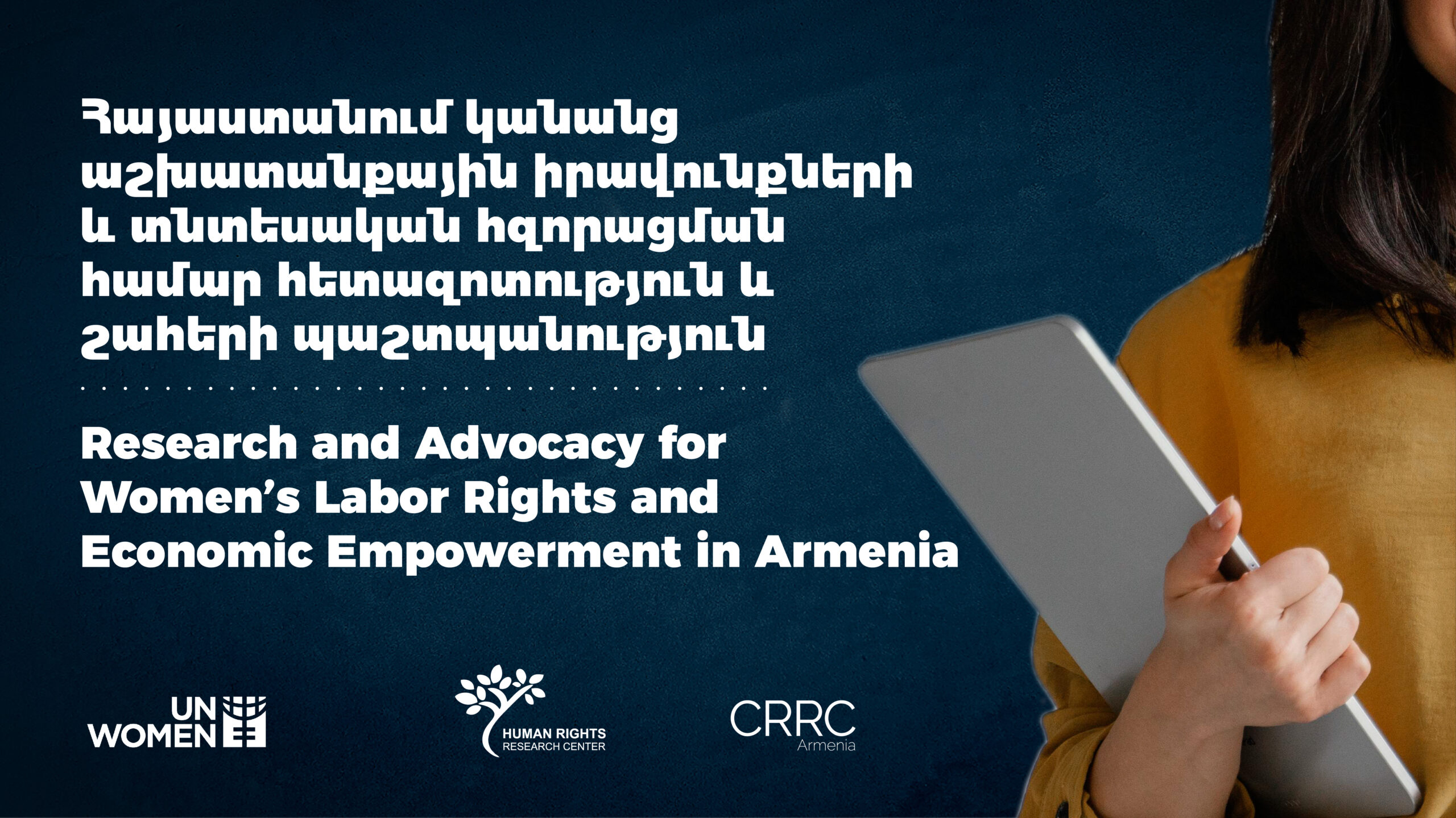Research and Advocacy for Women’s Labor Rights and Economic Empowerment in Armenia
Research and Advocacy for Women’s Labor Rights and Economic Empowerment in Armenia

Objective: Addressing the overall problem of the exclusion, discrimination, and low rate of women in the formal labor market in Armenia.
The project was funded by UN Women Georgia and implemented by CRRC-Armenia and Human Rights Research Center (HRRC) Armenia.
Activities
Regulatory Impact Assessments of the ILO Convention #183 (Maternity Protection), ILO Convention #156 (Workers with Family Responsibilities) and ILO Convention #189 (Domestic Workers) with the support of a UN Women international expert.
Output 1: A refined background paper based on an Armenian context
Output 2: A Desk Review report regarding existing socio-economic research and evidence relevant to the targeted ILO Conventions
Output 3: A list of interventions necessary for Armenia to align with each of the targeted ILO Conventions #183, #156, and #189 along with a detailed plan for regulatory impact assessment
Output 4: A presentation for key stakeholders of the developed papers and a plan for further analysis that defines priority areas for further work
Output 5. Economic and fiscal feasibility for ratification of the targeted ILO Conventions is clarified and presented to all the relevant stakeholders.
Output 6. Final Regulatory Impact Assessments (RIAs) report is compiled and presented to all the relevant stakeholders.
Assessment of Minimum Social Protection Floors in Armenia by supporting international experts in data collection, stakeholder consultations, and providing the final review of the report of the minimum social protection floors developed by the international experts in line with the ILO Convention #102 (Social Security).
Output 1. Reviewed, cleaned and translated statistical and institutional data collected from ARMSTAT, the MLSA, the Ministry of Health of the Republic of Armenia and other relevant government institutions through the project team’s support of international experts.
Output 2. Key stakeholders and international experts are consulted and informed on collected data and Armenian context overall.
Output 3: Inputs provided to interim reports prepared by the international exerts to properly reflect the Armenian context and data.
Output 4: Final Report in Armenian and English